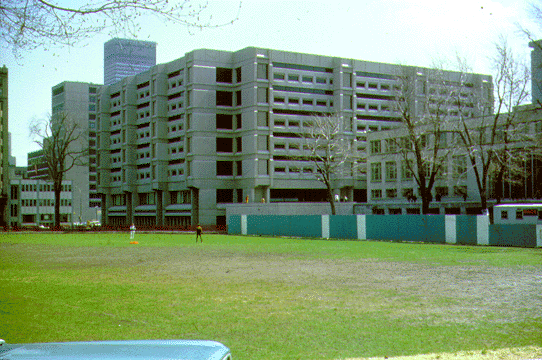A new semester means new classes—and expensive textbooks. For many students, the first place that comes to mind for new textbooks is Le James at the corner of Sherbrooke and University, which gets jam-packed with students during the first few weeks of September and January. However, outside of the campus bookstore, there are other ways to get the necessary materials for any McGill course.
The Word
A staple bookstore in the Milton-Parc community is The Word. Owned by Adrian King-Edwards, this quaint shop on Milton between Aylmer and Durocher has been in the business of selling a wide assortment of second-hand books for 44 years. At the beginning of every term, they compile a list of course textbooks that students can sell to the store, with some worth $100 or more. They only accept course materials that are of high quality, which means that they do not sell textbooks that are highlighted or have a broken spine. The process of buying back books and selling them to other students is no simple feat, since The Word spends a considerable amount of time before the rush of every September and January curating them.
“We usually spend six weeks before January getting ready for [the new term],” King-Edwards said. “We check on what books are being used [in courses] and make sure we have them, so that when the students come at the beginning of January, we have all the McGill textbooks at the [store] […], and we know [down to] which editions are used.”
The McGill Library
The campus library is an often overlooked resource for all types of course materials. With a mandate of creating a vast collection of information from all disciplines that is both legal and freely accessible, the library organizes materials into various categories. One major system is the course reserves system, which is where materials dictated by professors or frequently requested books are placed. As this method is free for all students, it comes with the caveat of shorter due dates for return.
“We have one-day loans and three-hour loans.” Katherine Hanz, head of the Lending and Access Service of the McGill Library, said. “Three-hour loans [are more difficult to acquire so] the only things that are three-hour loans are items that are getting stolen [and] items that someone is asking for […] every hour. As much as possible, we try to keep reserves […] to [more convenient one-day loans], where you can ask for card access to the self-serve room [where they are].”
Course reserves also add a huge cost burden on the library, meaning there is incentive for them to use other strategies such as buying electronic copies of textbooks when possible and advocating for the growing trend of open educational resources (OERs). OERs are free alternative teaching resources for students that are within the public domain rather than in the hands of private institutions. In the classroom, students can champion the trending move toward free resources such as non-reserve books and online resources rather than packaging them into expensive course packs.
“Philosophically, we plan to continue offering [course reserves],” Robin Canuel, Head of Liaison Services at the McGill Library, said. “We’re just hoping practices [such as] more OERs, [more] open textbooks, and [more] linking to our existing [online] materials [… means] less stuff in course reserves that [the library] has to buy.”
File-sharing websites
A seedier avenue are sites that have unauthorized files of many popular course materials. This underground network of links, sharing sites, and pirated copies is dependent on word-of-mouth and extensive google searching. Legally dubious due to its role in copyright infringement, many of these sites share a philosophy of decommercializing educational materials. A issue with getting textbooks through this method is that it yields mixed results since there is no centralized quality control.
With all these options available in the community and on the web, looking for textbooks doesn’t have to be a stressful task. The resources are out there; it is just a matter of knowing where to look.








